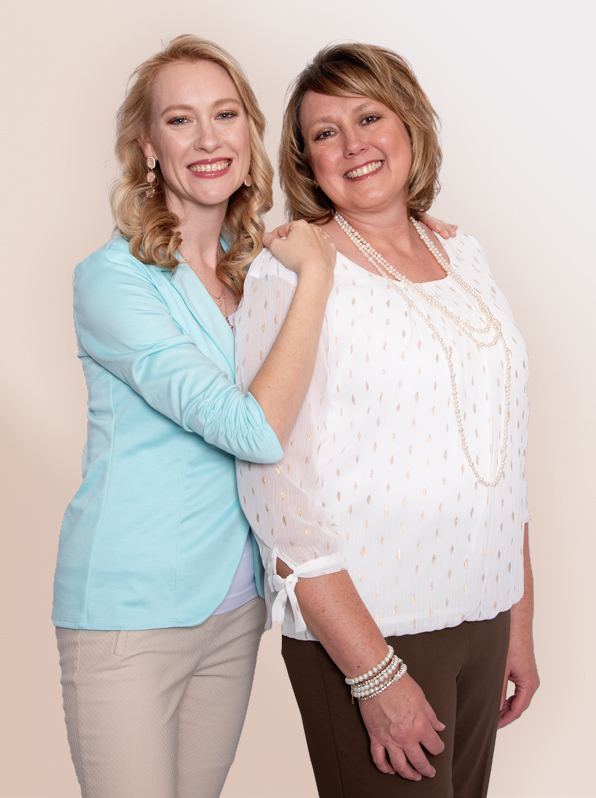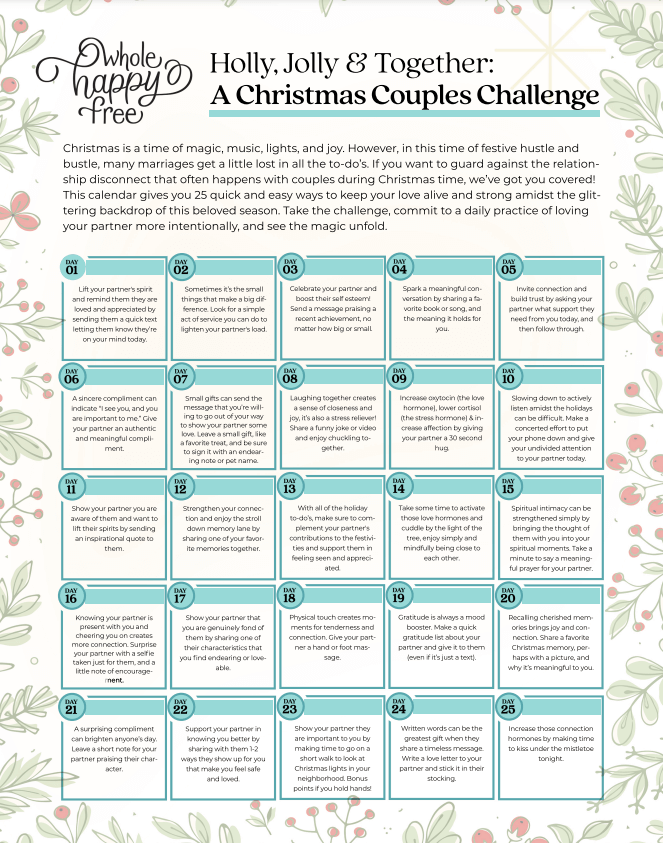Trust is a topic that comes up often in my office, usually in really defensive ways. It’s an important topic, and today we’re going to break it down to help you see yourself and your relationship more clearly. First of all, trust isn’t built in grand gestures—it’s the little things, done consistently, over time. In our latest Whole Happy Free podcast series, we explored Brené Brown’s BRAVING acronym, aptly named because it truly is a BRAVE thing to risk vulnerability and build trust. Each letter represents a key ingredient of trust, and when all seven are in place, relationships thrive. We’d love to have you take a listen here, but if reading is more your jam, we’ll summarize BRAVING below.
Boundaries
Trust starts with clear boundaries—knowing what’s okay and what’s not, and respecting those limits in yourself and others. Without boundaries, resentment builds, and relationships become murky. Healthy trust means saying no when needed, and honoring when others do the same.
Reliability
Trust grows when people do what they say they’ll do, consistently. One slip-up may not seem like a big deal, but research shows that a single breach of trust can outweigh multiple good acts. That’s why consistency is key—small, reliable actions over time create the strongest foundation.
Accountability
No one is perfect. Mistakes happen, but trust remains intact when people take responsibility for their actions, apologize sincerely, and make things right. Acknowledging our impact—regardless of intent—builds deeper trust.
Vault
Ever had a friend who shared someone else’s secret with you? Odds are, you knew immediately not to trust them with your own. The “vault” means keeping private matters private. True trust means knowing that what’s shared in confidence stays safe.
Integrity
Integrity is choosing courage over comfort, doing what’s right over what’s easy, and staying aligned with core values. As Brené Brown says, “Integrity is choosing what is right over what is fun, fast, or easy.” When both partners live with integrity, trust strengthens.
Non-Judgment
One of the quickest ways to erode trust is through judgment. True trust means being able to ask for help without feeling “less than.” Many people are comfortable giving help but struggle to receive it. But giving and receiving are two sides of the same coin—both display a level of trust in the relationship.
Generosity
Trust thrives when we assume the best in each other. Instead of immediately taking offense when someone doesn’t meet our expectations, we can pause and consider a more generous explanation. A story from the podcast captures this well—when someone cuts you off in traffic, instead of getting mad, imagine they just found a wart on their bum and are too flustered to drive straight! It might not be true, but it helps keep frustration at bay and may even bring a smile instead!
Putting BRAVING into Practice
Trust isn’t about perfection—it’s about showing up, being consistent, and choosing to believe the best in each other. If we’re having a hard time showing up for someone we love well, I can almost always tie it back to trust. When trust breaks, it takes more effort to rebuild than it did to create. But when we take the components of trust seriously, we can build relationships that are strong, safe, and lasting. Curious how trustworthy you really are? Or how your relationship measures up? We’ve got you covered with our free quiz. Take the time to dig in and make the changes you need to have the relationships you desire.








